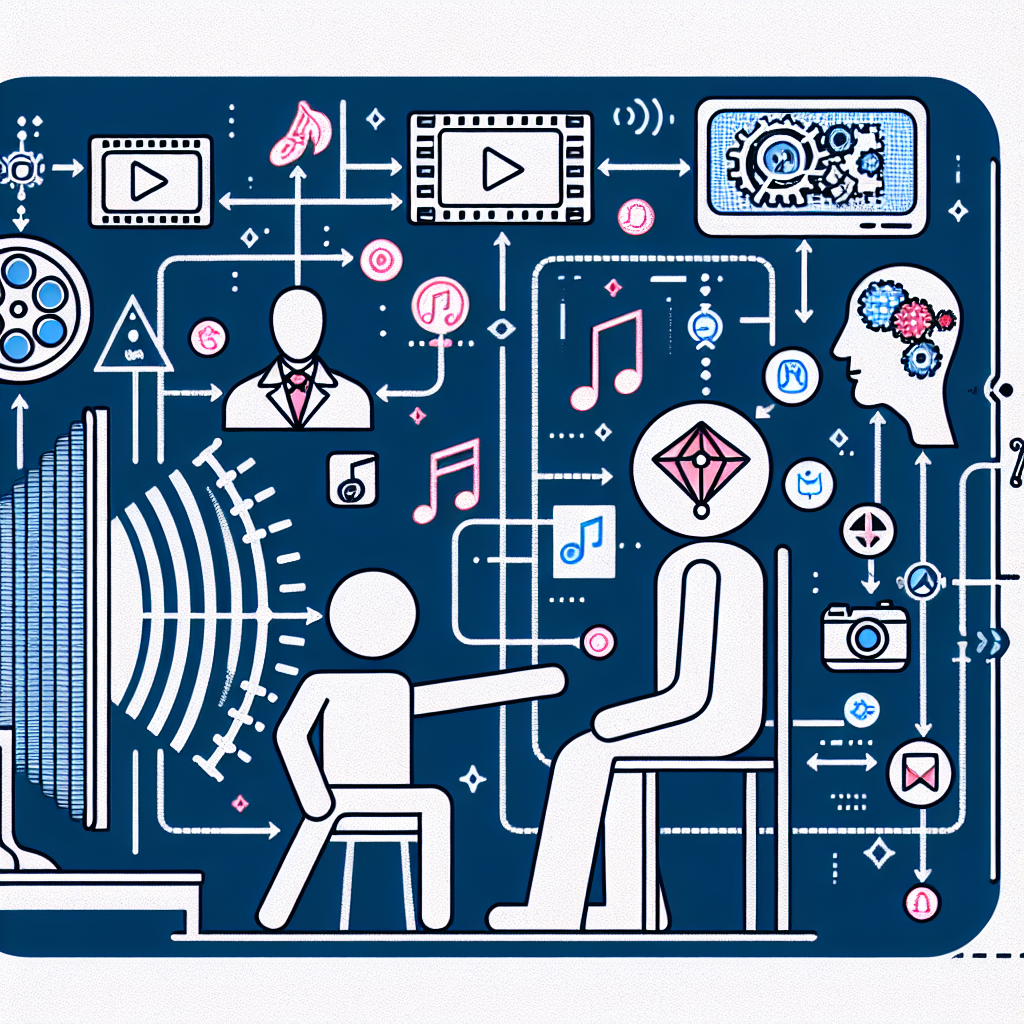In recent years, artificial intelligence (AI) has been transforming the way we consume entertainment. From personalized recommendations on streaming platforms to virtual reality experiences, AI software is revolutionizing the entertainment industry. By understanding user preferences and behavior, AI algorithms can create personalized experiences that cater to individual tastes and interests. In this article, we will explore how AI software is enhancing personalized entertainment and revolutionizing the way we interact with content.
Personalized Recommendations
One of the most prominent ways AI software is enhancing personalized entertainment is through recommendation algorithms. Platforms like Netflix, Spotify, and Amazon Prime Video use AI to analyze user data and behavior to recommend content that is tailored to individual preferences. By tracking viewing habits, search history, and ratings, AI algorithms can suggest movies, TV shows, music, and books that are likely to appeal to each user.
These recommendation algorithms are constantly evolving and improving based on user feedback and interactions. By leveraging machine learning techniques, AI software can identify patterns and trends in user behavior to predict what content a user will enjoy. This not only improves user satisfaction but also helps platforms retain customers and increase engagement.
Content Creation and Curation
AI software is also being used to create and curate personalized content for users. For example, AI-powered tools can generate personalized playlists on music streaming platforms based on user preferences and listening habits. These playlists can be updated in real-time to reflect changes in taste or mood, providing users with a dynamic and engaging listening experience.
In addition, AI algorithms can analyze user-generated content on social media platforms to identify trends and preferences among users. This data can then be used to curate personalized content feeds that are tailored to individual interests. By leveraging natural language processing and sentiment analysis, AI software can identify relevant content and present it to users in a way that is engaging and relevant.
Virtual Reality and Augmented Reality Experiences
AI software is also enhancing personalized entertainment through virtual reality (VR) and augmented reality (AR) experiences. By analyzing user behavior and interactions, AI algorithms can create immersive and interactive experiences that cater to individual preferences. For example, AI-powered VR games can adapt to a user’s skill level and playing style, providing a personalized gaming experience that is challenging and engaging.
In addition, AI software can be used to create personalized avatars and virtual environments that reflect a user’s preferences and personality. By analyzing user data and interactions, AI algorithms can create virtual worlds that are tailored to individual tastes, providing users with a unique and personalized experience.
Challenges and Opportunities
While AI software has the potential to enhance personalized entertainment, there are also challenges and opportunities that come with this technology. One of the main challenges is privacy and data security. AI algorithms rely on vast amounts of user data to create personalized experiences, raising concerns about data privacy and the potential for misuse of personal information. It is important for companies to be transparent about how they collect and use user data and to implement strict security measures to protect sensitive information.
Another challenge is ensuring that AI algorithms are unbiased and inclusive. AI software can inadvertently perpetuate biases and stereotypes if not properly trained and monitored. It is essential for companies to regularly audit their algorithms and ensure that they are fair and inclusive to all users.
Despite these challenges, AI software also presents opportunities for innovation and creativity in the entertainment industry. By leveraging AI technology, companies can create personalized experiences that engage users on a deeper level and cater to individual preferences. From personalized recommendations to immersive VR experiences, AI software is revolutionizing the way we consume and interact with entertainment content.
FAQs
Q: How does AI software personalize entertainment experiences?
A: AI software analyzes user data and behavior to create personalized recommendations, content, and experiences that cater to individual preferences. By leveraging machine learning techniques, AI algorithms can identify patterns and trends in user behavior to predict what content a user will enjoy.
Q: Are there any privacy concerns with AI software in personalized entertainment?
A: Yes, there are privacy concerns with AI software in personalized entertainment. AI algorithms rely on vast amounts of user data to create personalized experiences, raising concerns about data privacy and the potential for misuse of personal information. It is important for companies to be transparent about how they collect and use user data and to implement strict security measures to protect sensitive information.
Q: How can companies ensure that AI algorithms are unbiased and inclusive?
A: Companies can ensure that AI algorithms are unbiased and inclusive by regularly auditing their algorithms and ensuring that they are fair and inclusive to all users. It is essential for companies to monitor and train their algorithms to avoid perpetuating biases and stereotypes.
Q: What are some of the opportunities for innovation with AI software in personalized entertainment?
A: AI software presents opportunities for innovation and creativity in the entertainment industry. By leveraging AI technology, companies can create personalized experiences that engage users on a deeper level and cater to individual preferences. From personalized recommendations to immersive VR experiences, AI software is revolutionizing the way we consume and interact with entertainment content.

